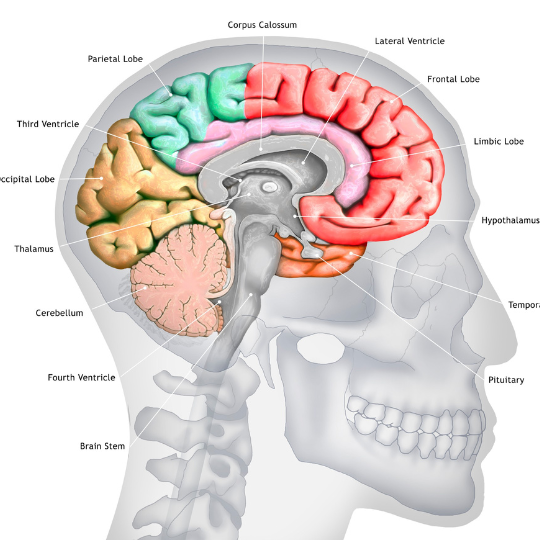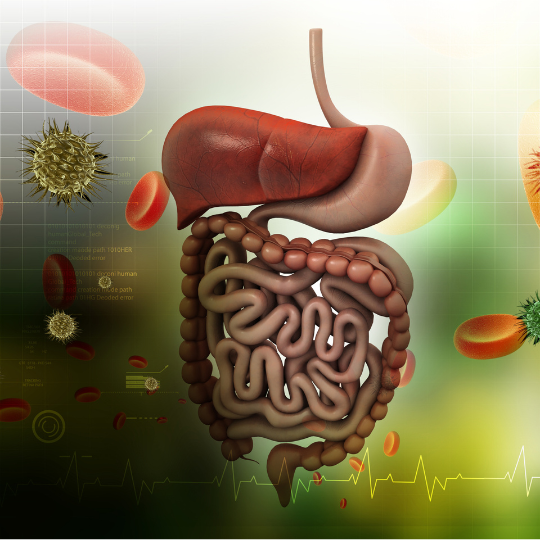The gastrointestinal (GI) tract is a long tube that extends from the mouth to the anus and is responsible of the digestion and absorption of nutrients. It consists of different parts, which have their own functions, characteristics and thus, pathologies (Ruan W, et al 2020).
In this article, we are going to talk about the main pathologies that affect the GI tract, genetic predispositions and how nutrition and habits can decrease the risks of developing these diseases.
Inflammatory Bowel Disease (IBD)
One of the most common GI tract pathologies is Inflammatory Bowel Disease (IBD), which includes Chron’s disease and ulcerative colitis. Chron’s disease can affect any part of the GI tract, but mostly affects the small intestine and the colon. Ulcerative colitis, on the other hand, only affects the colon. These conditions are characterized by chronic inflammation of the intestinal lining, leading to abdominal pain, diarrhea, malabsorption of nutrients which lead to deficiencies and weight loss (Ruan W, et al 2020).
Celiac disease
Other common GI tract pathology is celiac disease, and gluten intolerance. These conditions are caused by the activation of the immune system by a protein found in wheat and derivates, called gluten. Celiac disease causes damage of the small intestine, which leads to chronic inflammation, allergic reactions, abdominal pain, diarrhea, nutrients deficiency and weight loss (Ruan W, et al 2020).
Health impact
Both of the pathologies described above have a significant impact on physiology and metabolism. They can lead to malnutrition due to inflammation and damage of the intestinal lining, which impairs the absorption of nutrients. This could lead to severe health problems not only in the GI tract, for example they could lead to joint pain, skin rashes, osteoporosis, hair loss, fatigue, infertility, etc (Ruan W, et al 2020).

Risk factors
GI tract pathologies can be caused by different factors, mainly genetics, diet and lifestyle factors such as smoking and stress.
There are several genetic predispositions and single nucleotide polymorphisms (SNPs) that can influence the risk of developing GI tract pathologies.
- NOD2 gene: responsible for activating the nuclear factor NF-kB, which then acts as an intracellular receptor for components of microbial pathogens. SNPs in this gene cause susceptibility to Chron’s disease by altering the recognition of these components, or by activating monocytes and generating an inflammatory response (Hugot, JP, et al, 2001).
- HLA gene: Human Leukocyte Antigen (HLA) gene specifically HLA DQ 2.5 is associated with celiac disease. This gene is responsible for activating the immune system when in contact with gluten. The only way to assess the impact of this gene’s SNPs is decreasing gluten in ingestion (Sciurti M, et al 2018).
Nutrition
There are certain foods that may help to reduce the risk of GI tract pathologies. For example, probiotics have been shown to have a beneficial effect on the gut microbiome and may reduce the risk of certain GI tract disorders. Additionally, foods high in fiber, such as fruits, vegetables, and whole grains, have been shown to have a protective effect against these pathologies. Bone broth is particularly soothing for your gut; or any other gut whatsoever.

Some pro-inflammatory foods such as processed foods, sugars, fats and gluten can also be reduced.
Supplementation
Individuals with genetic predispositions to GI tract pathologies could get benefits from supplementation. For example, probiotics supplementation could support the gut microbiome and help with digestion and absorption of nutrients. Individuals with celiac disease may need supplementation with vitamin D and calcium to avoid further damage due to impaired absorption of nutrients.
Remember also that the GI tract is connected to your entire biological system, and factors such as stress could also lead to ulcers, and inflammation. So, addressing stress could also be beneficial not only to your GI tract health, but your overall health.
It is important to not self-diagnose, always talk to a health specialist (including us at Nutrifix) to help you understand your genetics and see if you could have any of these pathologies. We can also help you to incorporate healthy habits in your genetic and metabolic optimization journey, and a diet according to your genes, to make you feel better from inside out.













